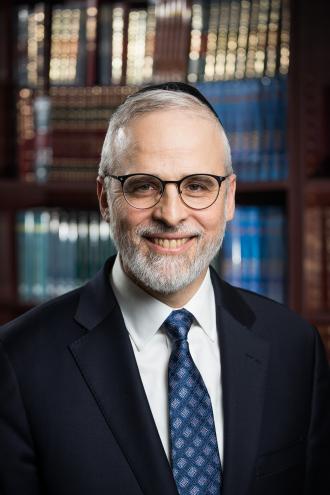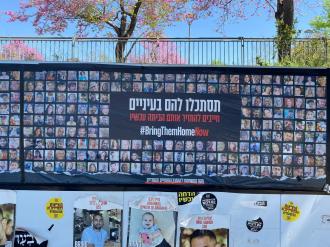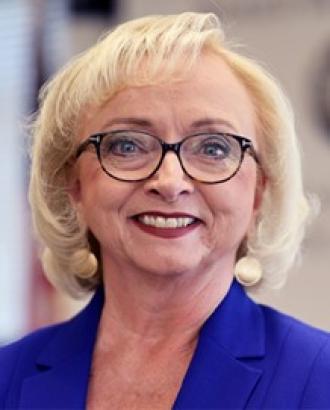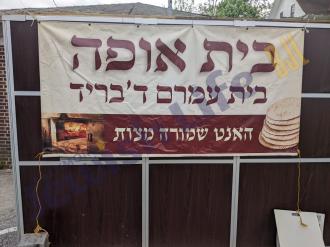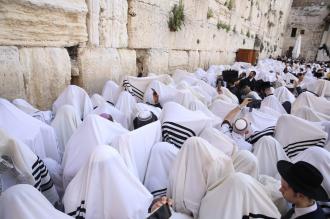The Children of Israel find themselves, after thirty-eight years in the desert, poised to enter the land. Miriam dies and the well that provided them water in her merit for all these years, suddenly ceases to flow.
They quarrel with Moshe, pointedly asking him, “Why have you brought the congregation of G-d to this wilderness to die there, we and our animals? And why did you bring us up from Egypt to this evil place? - not a place of seed, or fig, or grape, or pomegranate; and no water to drink!”
It seems odd that fearing death from the paucity of water they should express their bewilderment about the death of their animals too. If they are to die, their animals are insignificant to them.
Additionally, their statement about having brought them to a place lacking, ‘figs, grapes and pomegranates’ - and ‘also’ vital water to drink, is incongruous. One does not complain first about not getting their just dessert and then mention, by the way, we missed out on the main dish too! Water is a matter of life and death; fruit is simply a luxury.
The Yalkut Shimoni compares the concern they expressed for their animals to the directive of Yaakov Avinu to Yosef to check on the welfare of his brother and ‘the welfare of the sheep’.
Praised are the righteous, the Midrash continues, who cherish their animals as their own bodies.
The legendary Mashgiach of Chevron Yeshiva, Reb Leib Chasman, explains this to mean that the righteous see their worldly possessions as a gift from G-d placed in their trust to promote His will through purposeful use of them. They are not an entitlement to be used mindlessly and for selfish interests, but rather as a tool to be utilized in promoting the honor of Heaven.
People who live with a view of the ‘bigger picture’ understand that life is not merely a journey of survival. It is a privilege bestowed upon us to convey an attitude of kindness that extends not only to those who we naturally care for, but to be attuned and sensitive to the needs of all facets of creation.
King Solomon observed, יודע צדיק נפש בהמתו ורחמי רשעים אכזרי (משלי יב י), A righteous man has regard for the desire of his beast, but the mercy of the wicked is cruel.
The righteous live with an authentic concern for all beings, unrelated to one’s own needs or benefit. The wicked only act kindly when it is advantageous for themselves. Their ‘mercy’ is laced with cruelty, since when another is suffering that he has no vested interest in, he will ignore and show no interest or care.
The nation yearned for a life of meaning; a life with a mission; a life with purpose. They were not complaining due to a fear of dying, they were pining for a life of inspired existence where they and their ‘animals’ can create a world that returns to G-d a debt of gratitude, for the overwhelming kindness and grace He has bestowed on them, by living meaningful lives with those gifts.
The Maggid of Minsk, Reb Yehoshua Zelig of Raznai, points out in the verse where they assert, לא / מקום זרע ותאנה וגפן ורמון ומים אין לשתות, “...not / a place of seed, or fig, or grape, or pomegranate; and no water to drink!”, there is a פסיק, a cantillation mark that signifies a ‘stop’, one should pause, between the word - לא, not, and - מקום, a place.
He suggests that what they were actually conveying was - No! - stop - it is not the fact that it is a place lacking lustrous fruit, because that is not what we need, it is that we are pining for a live of glorious purpose and design, and we and our divinely inspired material gifts, will die in thirst, never actualizing our quest for closeness to G-d.
Although this episode lead to a fatal error made by Moshe and doomed him to not entering the land, we do not find the nation was taken to task for their complaint. G-d in fact responded exactly as they requested by telling Moshe to bring forth water from the rock so that it will ‘give drink to the assembly and to their animals’.
Rashi quotes from the Midrash that reflects on the Torah’s emphasis on the animals telling us that ‘from here we learn that the Holy One, blessed is He, has regard for the property of Israel.’
Do we need a source that G-d is concerned about our financial holdings? Does He only worry about our physical selves? Of course, G-d factors all aspects of our life when attending to our many needs. So, what can this possibly imply?
Might I suggest that the lesson therein is that if we display before G-d a genuine desire to live an inspired life using the material gifts we receive thoughtfully and carefully, not callously or wastefully, then G-d will ‘regard’ and continue to grant us the material tools and comforts we need to live an exalted life.
We have experienced over the past half of a year a disruption of life as we knew it. The premises and assumptions we lived with for decades or more have been pulled from under our feet. Our assets and the ability to use them effectively have been greatly reduced.
The thirst for water is used as a metaphor for a much deeper yearning.
צמאה לך נפשי כמה לך בשרי בארץ ציה ועיף בלי מים כן בקודש חזיתיך לראות עזך וכבודך (תהלים סג ב)
My soul thirsts for You; my flesh longs for You, in an arid and thirsty land, without water. As I saw You in the Sanctuary, [so do I long] to see Your strength and Your glory.
If we cry out to G-d - longing for connection; yearning to restore our material blessings as vehicles for inspired living; aspiring to become kinder and more mindful of the world around us in infusing it with His presence and His will; seeing the ‘bigger picture’, then we are guaranteed that the Almighty will permit us to drink from His springs, waters that will nourish us, quenching our thirst for His closeness.
באהבה,
צבי יהודה טייכמאן







